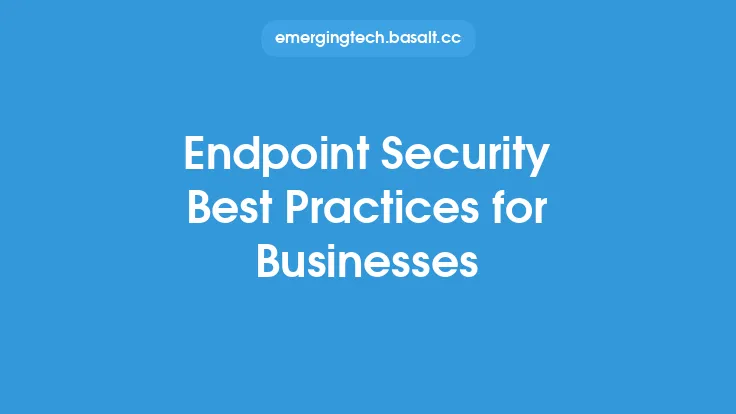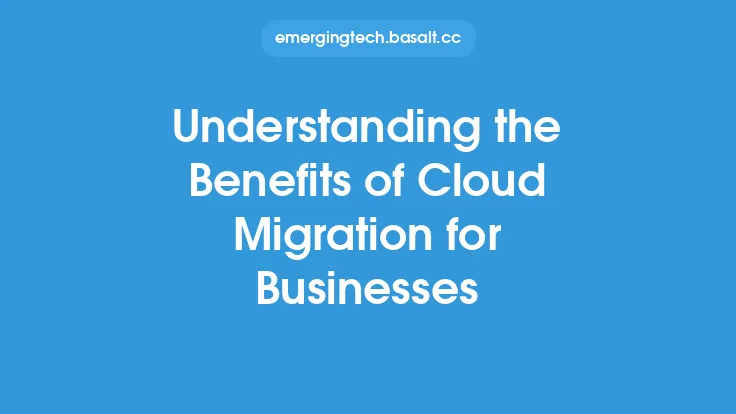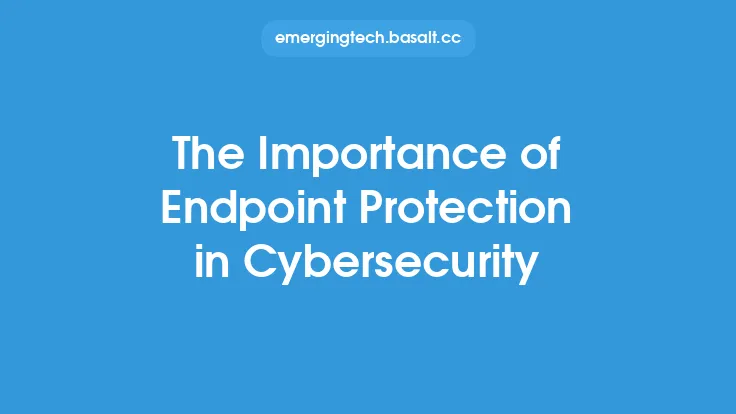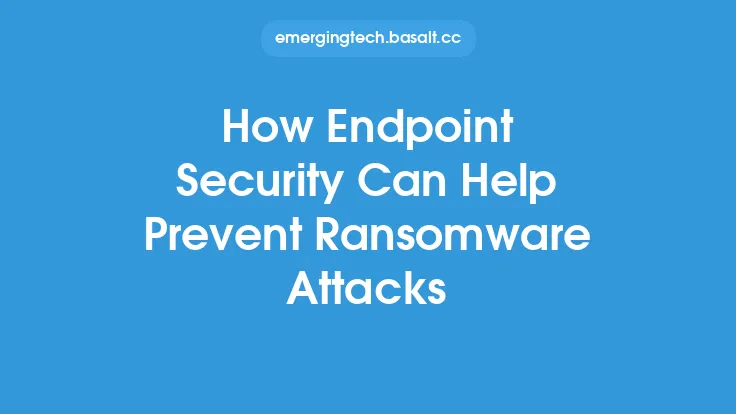As the world becomes increasingly digital, the traditional concept of a workplace has undergone a significant transformation. With the rise of remote work, employees are no longer confined to a physical office space, and this shift has introduced new challenges for organizations to ensure the security of their data and systems. One critical aspect of cybersecurity that has become essential for remote workers is endpoint security. In this article, we will delve into the importance of endpoint security for remote workers and explore the measures that can be taken to protect these endpoints from various threats.
What are Endpoints?
Endpoints refer to any device that connects to a network, including laptops, desktops, mobile devices, tablets, and even IoT devices. These devices can be vulnerable to various types of cyber threats, including malware, phishing attacks, and unauthorized access. When remote workers use their personal devices to access company resources, they can inadvertently introduce security risks to the organization's network. This is where endpoint security comes into play, as it involves implementing measures to protect these devices from cyber threats and prevent them from becoming entry points for attackers.
The Risks Associated with Remote Work
Remote work introduces a unique set of security challenges, as employees may be using unsecured networks, public Wi-Fi, or personal devices that are not equipped with the same level of security as company-owned devices. This can make it easier for attackers to gain access to sensitive data and systems. Some of the common risks associated with remote work include:
- Unsecured networks: Public Wi-Fi networks and unsecured home networks can be easily compromised by attackers, allowing them to intercept sensitive data and gain access to company systems.
- Personal devices: Employees may be using personal devices that are not equipped with the same level of security as company-owned devices, making them more vulnerable to cyber threats.
- Lack of visibility: IT teams may have limited visibility into the devices and networks used by remote workers, making it difficult to detect and respond to security threats.
- Insider threats: Remote workers may be more likely to fall victim to social engineering attacks or accidentally introduce malware into the company network.
How Endpoint Security Can Help
Endpoint security can help mitigate the risks associated with remote work by providing an additional layer of protection for devices and data. Some of the ways endpoint security can help include:
- Device management: Endpoint security solutions can help IT teams manage and monitor devices used by remote workers, ensuring that they are configured correctly and have the latest security updates.
- Threat detection: Endpoint security solutions can detect and respond to threats in real-time, preventing attackers from gaining access to sensitive data and systems.
- Encryption: Endpoint security solutions can encrypt data on devices, making it unreadable to unauthorized users.
- Network access control: Endpoint security solutions can control access to company networks, ensuring that only authorized devices and users can connect.
Technical Measures for Endpoint Security
From a technical perspective, there are several measures that can be taken to ensure endpoint security for remote workers. Some of these measures include:
- Implementing a virtual private network (VPN) to encrypt internet traffic and protect data in transit.
- Using a mobile device management (MDM) solution to manage and monitor mobile devices used by remote workers.
- Deploying endpoint detection and response (EDR) tools to detect and respond to threats in real-time.
- Implementing a secure access service edge (SASE) framework to provide secure and seamless access to company resources.
- Using a cloud access security broker (CASB) to monitor and control access to cloud-based applications and data.
Best Practices for Endpoint Security
In addition to technical measures, there are several best practices that can be followed to ensure endpoint security for remote workers. Some of these best practices include:
- Conducting regular security awareness training for remote workers to educate them on the risks associated with cyber threats and the importance of endpoint security.
- Implementing a bring-your-own-device (BYOD) policy to ensure that personal devices used by remote workers meet certain security standards.
- Regularly updating and patching devices and software used by remote workers to prevent exploitation of known vulnerabilities.
- Using multi-factor authentication (MFA) to add an additional layer of security for remote workers accessing company resources.
- Monitoring and analyzing endpoint security data to identify potential security threats and improve incident response.
Conclusion
In conclusion, endpoint security is crucial for remote workers, as it provides an additional layer of protection for devices and data. By understanding the risks associated with remote work and implementing technical measures and best practices, organizations can help protect their remote workers from cyber threats and prevent security breaches. As the world becomes increasingly digital, it is essential for organizations to prioritize endpoint security and ensure that their remote workers have the necessary tools and training to stay safe online. By doing so, organizations can help protect their data, systems, and reputation, and ensure the continued success of their remote work programs.





